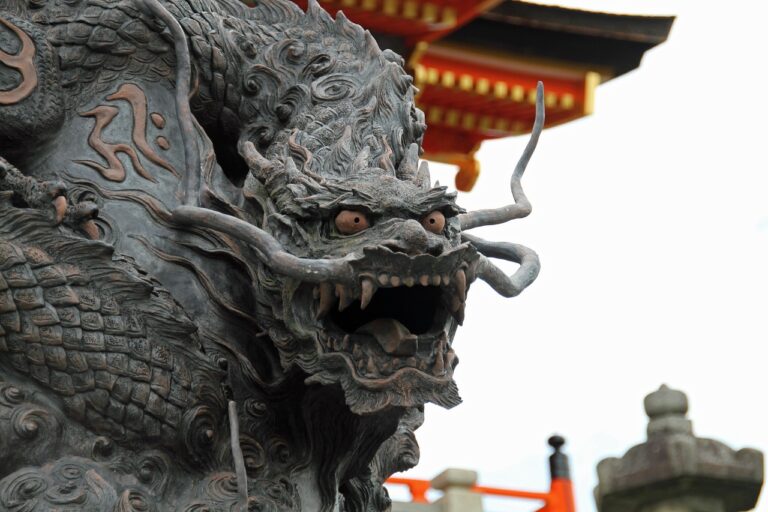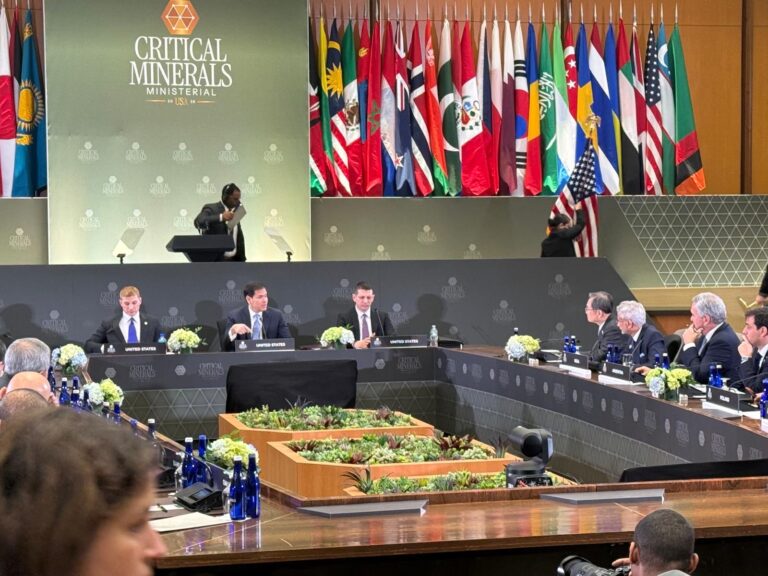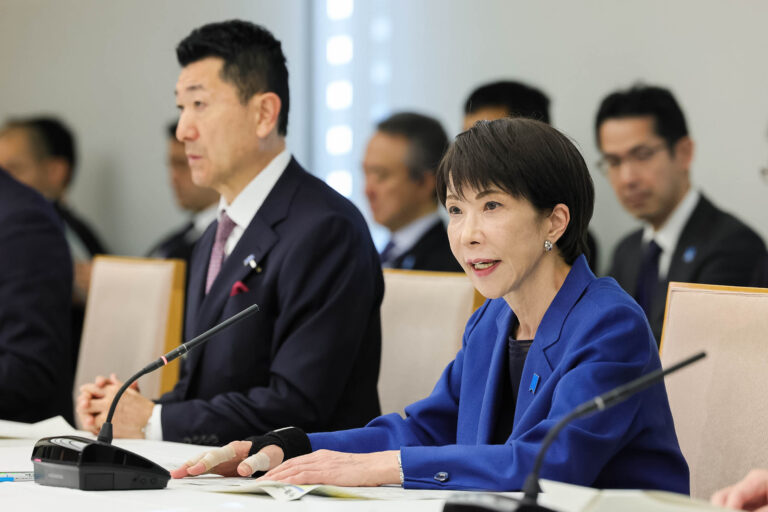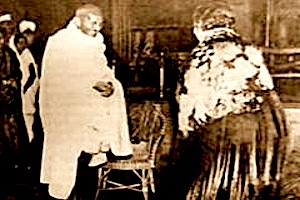
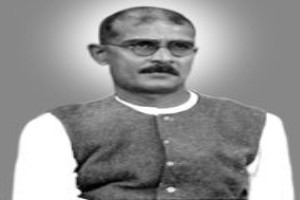 By Mahadev Desai*
By Mahadev Desai*
(This article was published in Young India on November 19, 1931)
At Montessori Training College
I have noted in these columns Madame Montessori’s meeting with Gandhiji. It was the meeting of a soul with a soul. She was so deeply touched that she wrote: “Gandhi appears to me as a soul rather than a man. He had been in my thoughts for years and years. I have followed him with my soul. His gentleness, his sweetness was such, that it was as if in the whole world there existed no such thing as harshness; he gave himself freely and fully, as if no limits or obstacles existed; strong direct as a ray of sunshine. It seemed to me that this venerable being might greatly aid the teachers whom I am preparing. The teachers should be open hearted and generous, should change his own soul that he may come forth from the harsh world of the adults, that world full of obstacles thwarting the life of humanity. May his meeting with our teachers aid us in the spiritual defence of the child in humanity.”
Also read: History Recalled: Banaras Hindu University
Gadis and pillows were provided for us to sit on and the children – from the poor borough of Islington – all like little angels, clean and sweet, and simply dressed, with bare legs and feet, gave Gandhiji a right Indian greeting – Namaskar. And then the little ones treated us to what they had been taught – rhythmic movement, little acts of concentration and will power, instrumental music and last, but not least, an exercise in silence. It impressed all those present greatly. In Madame Montessori, surrounded by her children, one had a vision of the world set free for the children – children, the only creation of the Maker most akin to Himself. Even if Madame Montessori’s educational ambition may not bear full fruit, she will have rendered a unique service to humanity by turning the attention of parents and teachers to the adorable in the child. In sweet musical Italian she gave Gandhiji a brief welcome, which her secretary translated into English. And even the translation thrills one through and through:
“I address myself to the pupils of my course and also to the friends here. I have a great thing to say to you – the Soul of Gandhi – that great Soul of which we are so conscious is here with us incarnate in his bodily form. The voice which we shall soon have the privilege of hearing is that voice which sounds throughout the world. He speaks with love, and not merely with his voice does he speak but with his whole life. Such a rare thing is this, that when it happens, every ear listens. Noble Master! I am proud that the voice which is privileged to give you your welcome here, should be the voice of one of the Latin races – a voice from Rome, the great city Rome, cradle of the religious thoughts of the West. I wish that I could here present incarnate all the life and thought of the West to do honour to the East. I present you here my students. There are not only my students, but there are friends and the friends of their friends, and their relations fathered here together. But among my students there are people of many many nations. Here met together are the generous-hearted English teachers and many students from India – Italian students, Dutch, German, Danes, Swedes, Czecho Slovakians, Austrians, Hungarians, Americans, Australians, students from New Zealand, South Africa, Canada and from Ireland. They are all here out of love for the child.
The word civilization and thought of the child-this is what links us and brings us together in your presence, O Master. For we teach children to live, to live that spiritual life upon which alone can be built up the peace of the world. That is why the students are gathered together here to hear the voice of a Master in the art of life and for all of us – students and their friends, this will be a memorable day in our lives. These 24 little English children, who have prepared themselves and worked for you, are living symbols of the new child that is to be. We all await from you the word.”
This had the tremendous effect of smiting all the cords of Gandhiji’s heart which, trembling produced a music worthy of the great occasion. It was at once a message and a charter for the parents and children in all parts of the world. I reproduce it here in full.
“Madame, you have overwhelmed me with your words. It is perfectly true, I must admit it in all humility, that however indifferently it may be, I endeavour to represent love in every fibre of my being. I am impatient to realize the presence of my Maker, who to me embodies Truth, and in the early part of my career I discovered that If I was to realize Truth I must obey, even at the cost of my life, the law of Love. And having been blessed with children, I discovered that the law of Love could be best understood and learned through little children. Were it not for us, their ignorant poor parents, our children would be perfectly innocent. I believe implicitly that the children not born mischievous in the bad sense of the term. If parents would behave themselves whilst the child is growing, before it is born and after, it is a well-known fact that the child would instinctively obey the law of Truth and the law of Love. And when I understood this lesson in the early part of my life, I began a gradual but distinct change in life.
“I do not propose to describe to you the several phases through which this stormy life of mine has passed, but I can only, in truth and in perfect humility, bear witness to the fact that to the extent that I have represented Love in my life, in thought, word, and deed I have realized the “Peace that passeth understanding.” I have baffled many of my friends when they have noticed in me peace that they have envied, and they have asked me for the cause of that priceless possession. I have not been able to explain the cause save by saying that if my friends found that peace in me, it was due to my attempt to obey this, the greatest law of our being.”
“It was in 1915 when I reached India, that I first became acquainted with your activities. It was in a place called Amreli that I found that there was a little school being conducted after the Montessori system. Your name had preceded that first acquaintance. I found no difficulty in finding out at once that this school was not carrying out the spirit of your teaching; the letter was there, but whilst there was an honest – more or less honest-effort being made, I saw too that there was a great deal of tinsel about it.”
“I came in touch, then with more such schools, and the more I came in touch, the more I began to understand that the foundation was good and splendid, if the children could be taught through the laws of nature – nature, consistent with human dignity, not nature that governs the beast. I felt instinctively from the way in which the children were being taught that whilst they were being indifferently taught, the original teaching was conceived in obedience to this fundamental law. Since then, I have had the pleasure of coming across several of your pupils, one of whom had even made a pilgrimage to Italy and had received your personal blessings. I was looking forward to meeting the children here and you all and it was a great pleasure to me to see these children. I had taken care to learn something about these little children. I had a foretaste of what I saw here, in Birmingham, where there is a school between which and this there is a difference. But I also saw that there also human nature was struggling to express itself. I see the same thing here and it was a matter of inexpressible joy to me that from their childhood the children were brought to understand the virtue of silence, and how in response to the whisper from their teacher the children came forward one after another in that pin-drop silence. It gave great joy to see all those beautiful rhythmic movements and, as I was watching those movements of the children, my whole heart went out to the millions of the children of the semi-starved villages of India, and I asked myself as my heart went tout to those children, “Is it possible for me to give them those lessons and the training that are being given under your system, to those children? We are conducting an experiment amongst the poorest of the children in India. I do not know how far the experiment will go. We have the problem of giving real vital education to these children of India’s hovels, and we have no material means.”
“We have to fall back upon the voluntary assistance of teachers, but when I look for teachers, they are very few, especially, teachers of the type wanted, in order to draw the best from the children through understanding, through studying their individuality and then putting the child on its own resources, as it were on its own honour. And believe me from my experience of hundreds, I was going to say thousands, of children, – I know that they have perhaps a finer sense of honour than you and I have. The greatest lessons in life – if we would but stoop and humble ourselves, we would learn not from grown-up learned men, but from the so-called ignorant children. Jesus never uttered a loftier or a grander truth than when he said that wisdom cometh out of the mouths of babes. I believe it, I have noticed it in my own experience that if we would approach babes in humility and in innocence, we would learn wisdom from them.
“I must not take up your time. I have simply given you what is, at the present moment, agitating me; namely, the delicate problem considered in human terms of drawing out the best from these millions of children of whom I have told you. But I have learned this one lesson – that what is impossible with man is child’s play with God and if we have faith in that Divinity which presides on the destiny of the meanest of his creation, I have no doubt that all things are possible and in that final hope, I live and pass my time and endeavour to obey His will. Therefore, I repeat that even as you, out of your love for children, are endeavouring to teach those children, through your numerous institutions, the best that can be brought out of them, even so, I hope that it will be possible not only for the children of the wealthy and the well-to-do, but for the children of paupers to receive training of this nature. You have very truly remarked that if we are to reach real peace in this world and if we are to carry on a real war against war, we shall have to begin with children and if they will grow up in their natural innocence, we won’t have the struggle, we won’t have to pass fruitless idle resolutions, but we shall go from love to love and peace to peace, until at last all the corners of the world are covered with that peace and love for which, consciously or unconsciously, the whole world is hungering.
*Mahadev Desai was an eminent freedom fighter and Mahatma Gandhi’s personal secretary; article courtesy his grandson, Nachiketa Desai.


